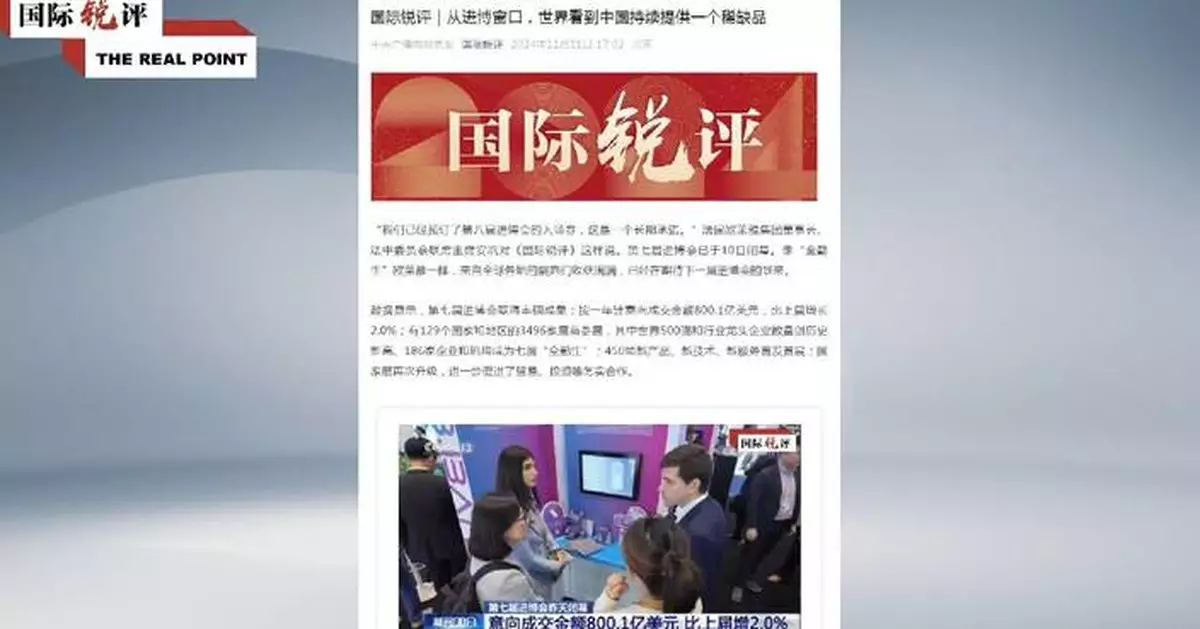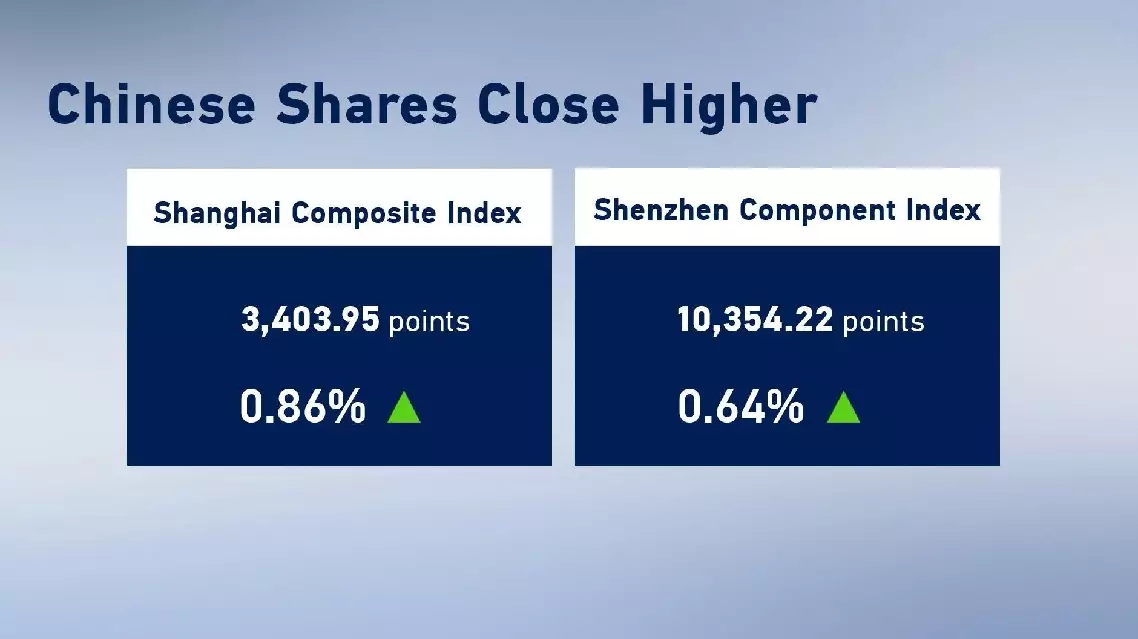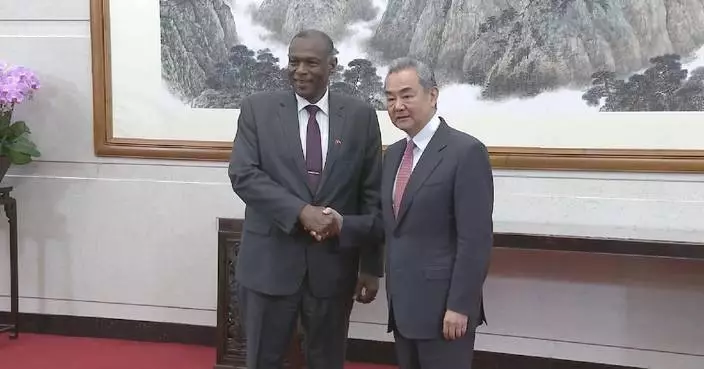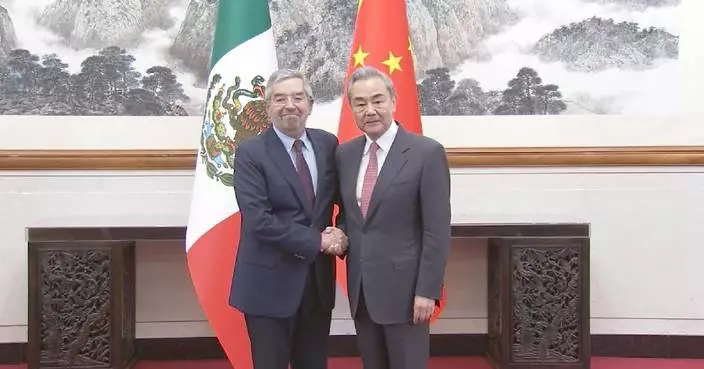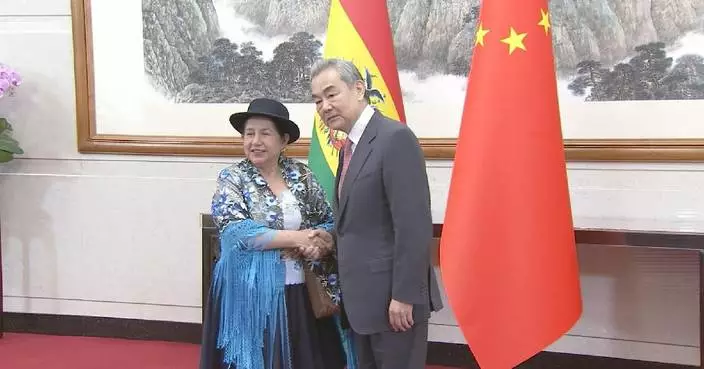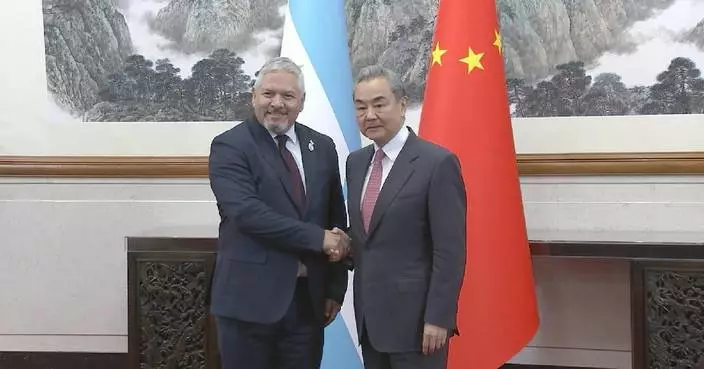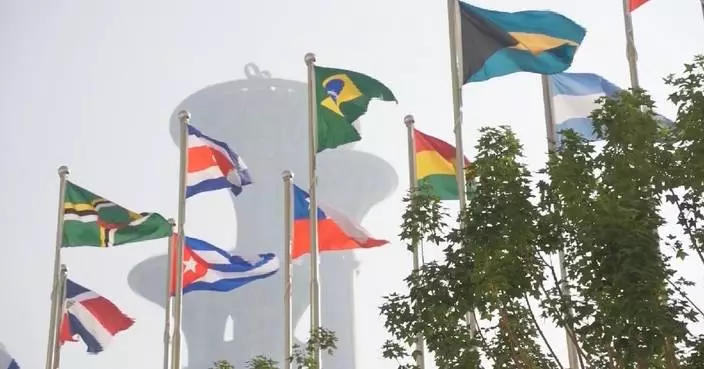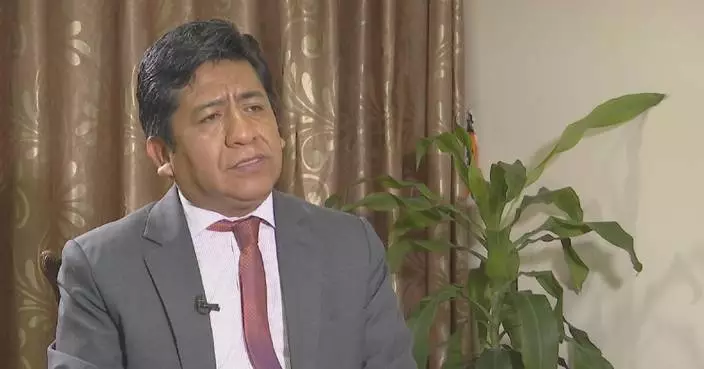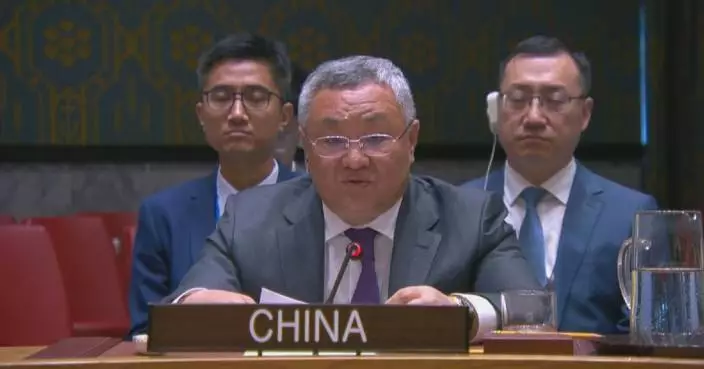China's commitment to openness and its vast market bring enormous opportunities for global players with the annual China International Import Expo (CIIE) serving as a golden gateway to these unmissable opportunities, according to a commentary released by the China Media Group (CMG) on Monday.
An edited English-language version of the commentary is as follows:
The seventh China International Import Expo (CIIE) saw over 80 billion U.S. dollars worth of tentative deals reached for purchases of goods and services, an increase of 2 percent from last year.
This year's expo has attracted 3,496 exhibitors from 129 countries and regions, with a record high number of Fortune Global 500 companies and industry leaders attending the event. Among all participants, 186 enterprises and institutions have been present at all seven editions of the expo.
Up to 450 new products, technologies and services made their debut at this year's CIIE.
On top of the national level import-themed expo, China has recently unveiled a series of initiatives, including broadened visa-free policies and eased investment restrictions, to open its doors ever wider to foreign visitors, investors and business doers.
For instance, from Nov. 8, citizens from Slovakia, Norway, Finland and six other countries can enter China without a visa. The country has also removed all market access restrictions for foreign investors in the manufacturing sector. In addition, starting from Dec. 1, China will give all the least developed countries having diplomatic relations with China, zero-tariff treatment for 100 percent of all tariff lines.
The opening-up policies are facilitating visits to China for foreign nationals, smoothing the development of foreign investment in China, and broadening the space for cooperation.
Viewed in a global context, China's continuous efforts to open up are particularly valuable in the face of the high wall of trade protectionism erected by certain countries.
According to the World Openness Report 2024 published during the expo, in terms of global openness, the index in 2023 decreased by 0.12 percent year on year, down 0.38 percent and 5.43 percent from 2019 and 2008, respectively. In contrast, in 2023, China's openness index increased by 11.89 percent over 2008, ranking among the highest in the world.
China's opening-up facilitates the smooth flow of people, capital and goods. In October this year, two 150-kilogram Maltese bluefin tuna landed in Shanghai, marking their official entry into the Chinese market after their "first show" at the last CIIE. Many international companies, including French cosmetic giant L'Oreal and Netherlands-based global tech company Philips, have announced increased investment in China.
As China continues to establish platforms for high-standard opening-up, such as the CIIE, and introduce a series of measures to facilitate inbound visits, foreign-invested enterprises will be well-positioned to further develop in China and share the opportunities in the vast market.
International companies attending the expo are rolling out cutting-edge tech products such as AI-driven footwear, eco-friendly tires, innovative drugs and advanced medical devices tailored to consumers in China's vast market.
And more and more foreign companies are establishing their innovation centers in China, taking advantage of the nation's innovation prowess to enhance local research and development.
At present, with many international companies already signing up to attend the next CIIE, the planned exhibition area will exceed 100,000 square meters. At the end of this month, the second China International Supply Chain Expo will be held in Beijing to promote global collaboration on industrial and supply chains.
Opening-up is a defining feature of Chinese modernization, and a rare offering China presents to the world. This is why foreign-invested companies view "coming to China" as a long-term commitment.
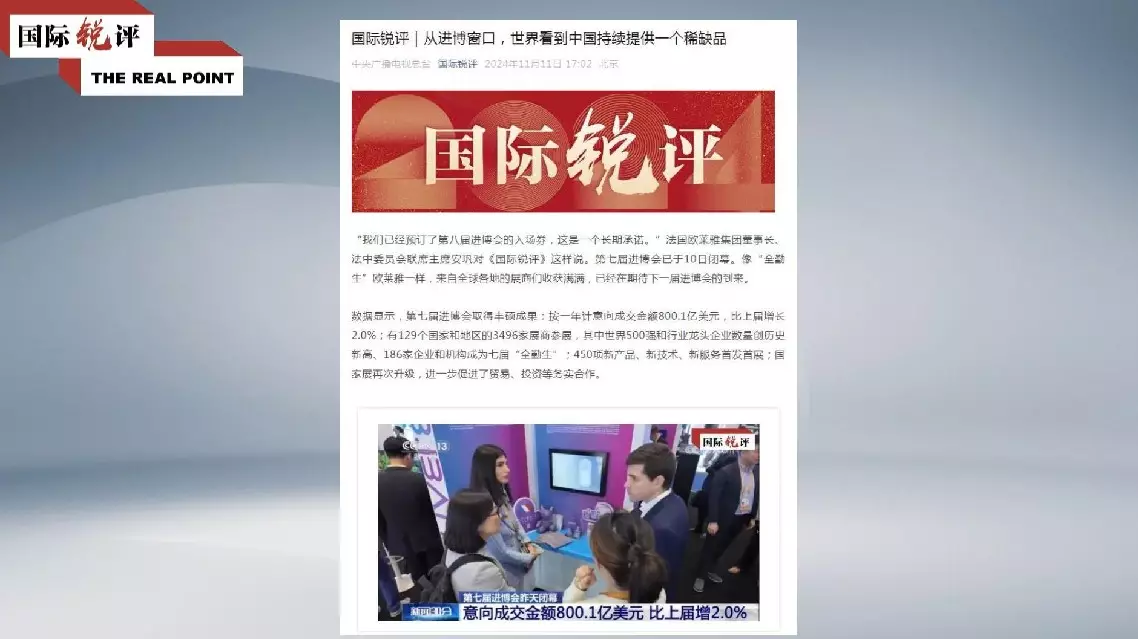
China's opening up is rare offering to world: commentary
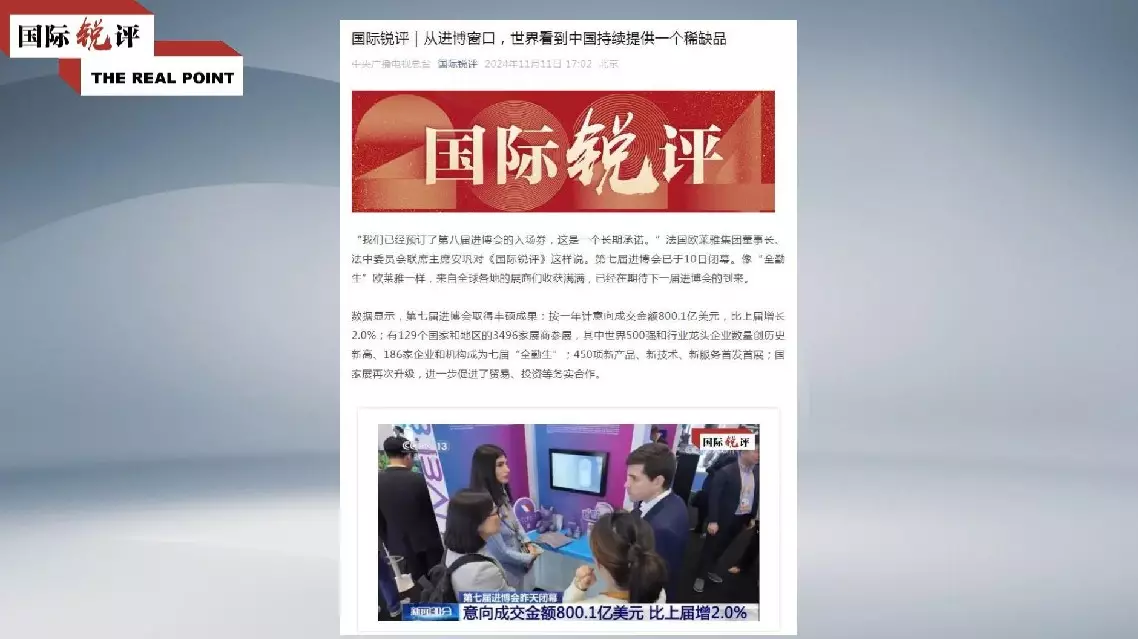
China's opening up is rare offering to world: commentary


